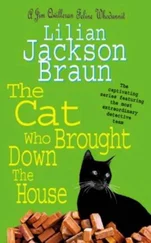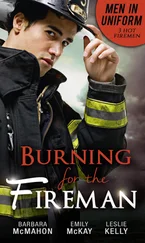—
These figments: her mother, Ian, her self, they shift inside her. The movement of tectonic plates, continental drift, human change.
—
It’s one of those long dead streets in Bushwick that’s getting trendy, with a restaurant that has no door and warehouses covered in spray paint. It’s always deserted on this street even though everyone comes here and the bars are crowded. That evening, like most evenings, she feels herself about to break down and so she leaves the restaurant to smoke a cigarette by herself. An unplanned unpleasantness meant to distract her from the planned unpleasantness of her social engagement. As soon as she heads into a doorway she senses that she has made a mistake. The black paint, the men emerging from the shadows, the scene as if she’s dreamed it, someone grabbing her arms, speaking softly but unkindly. A cold fear that comes sweeping over her, beyond her strength, beyond her understanding. A feeling that she could enter a place beyond death, enter fully into the madness she has been circling, narrowly avoiding, or at least disguising. And suddenly she’s hearing another voice, the voice of the private-equity guy whom she would no more have expected to intervene in a dangerous situation than she would have expected her mother to reappear in the dark doorway, dove gray, angelic, wings made of feathers, tubes still dangling from her nose and mouth.
—
Somehow he talks the men out of it, whatever it was, and gives them some bills and they leave her alone. But the fear hasn’t left her and when they go back to his loft in the Financial District she finally accepts the drugs he’s been urging on her for weeks. He says they’ll be good for her. He calls them by their scientific chemical names as if that makes them medicinal, clinical, FDA approved. She believes that she will know when she has gone too far, when the time has come for her to recognize that enough is enough, that she will be able to change course. But the surprising thing about this situation is, the thing she is most struck by as she sits slumped in a matte-velvet-upholstered original midcentury French chair staring at the quarter-sawn oak floorboards in a herringbone pattern is that it is actually extremely difficult to change. Once on a highway it is remarkably difficult for a person to exit. If she had said this aloud in English class she would have felt like an idiot, it was such an obvious idea. But she was not herself, she was now that foolish girl who said foolish things, and so who was she to judge? That no one has noticed what she has become lends this experience its darkest terror. That no one would realize she had lost her mind, that some substitution had taken place and her identity had been plucked away and that she was powerless to replace it, this must be worse than insanity. The worst, she thinks, is when you go crazy but you are completely aware of what has happened.
ALIX MET IAN at an exquisitely appointed bistro in the West Village. All rustic industrial and so tasteful that she felt as if she had slipped into a design blog. The furniture and objects glowed with a fanatic essentialism that attempted to wordlessly explain why they were so expensive. Ian had arrived first. He was at a table by the window, nursing a hot beverage and looking more unkempt than usual. He seemed to be having a private moment, and Alix almost didn’t want to intrude, privacy being so scarce, practically illegal these days. What was troubling him? she wondered. What would she find if she could undertake surveillance of his brain, his thoughts, his mind? Of course, what she really wanted to know was what was in his heart. However, even entry into his neural synapses could not have told her that.
—
Could she see how his heart ached and his head hurt? He groped for thoughts but they were pulled under by waves of disturbance, guilt, regret. He was riding wave after wave and yet from the outside he appeared only slightly messier, somewhat tired, preoccupied, stressed, overworked, distracted. Not like a drowning man.
—
She sat and it took him a moment to notice that she was there.
Hey, said Alix. Hello.
He didn’t say anything for a long time.
Then, quietly, his head tilted: So this is middle age, he said.
I’m skipping middle age, she said, picking up the menu and squinting at it. I’m going straight to aged.
Ian’s forehead rippled and twisted in eddies of understanding.
I know what you mean, he said. Aged is more dignified.
Exactly.
But the thing about middle age is — he leaned forward — it is undignified. It just is. And you can’t skip it. I thought you could too, by not even getting to full-grown adult, but—
What? Ian are you crying? Have I ever seen you cry?
But you really don’t have a choice. We don’t. Trying to skip middle age is like trying to go straight from child to adult and not stopping at teenager.
That’s exactly what I did!
He was letting his eyes well up, not fighting it.
And how did that work out for you?
Oh, she said, sighing. You know how.
She reached her hand across the table for his.
Listen, best friend, you can tell me anything.
His whole face contorted and his eyes shut as if blocking out an image beyond horror, beyond death, something that should never have been seen. He gripped her hand. He covered his face with his other hand. This went on for a while.
Pretty undignified, huh? he said, when he had finished.
That’s okay, she said. It’s totally okay.
Thank you, he said. I really don’t deserve any of this.
Any of what?
You, your friendship, listening to me.
Don’t be ridiculous. I’m not even listening to you. That’s because you’re barely saying anything.
The waitress had hovered in their orbit for a while and by now had given up.
I can’t, he said.
The contortion again, rivers and mountains of a textured globe furrowing his brow, like the world being born.
Did you kill someone?
No.
Then I think you can tell me.
The mountains rolling into hills, then prairies. His face relaxing. His gray eyes staring into hers.
—
For him the whole room, the whole city, the whole world is inhabited by Poppy. She’s laughing, mocking. She’s crying, brooding. Her wide eyes. His heart a mess, a raw organ laid out on a chopping board. He can see it quiver. This is the ache of actually loving her. Not knowing how she is, if she is okay. How long can he keep this secret? He thinks about telling Alix, about showing her his heart, taking a bite out of it right in front of her. But for the same reason he doesn’t tell Poppy who he is he doesn’t tell Alix: he is afraid to hurt them. Afraid for whom?
—
Finally he said, I really can’t. But you’ve been very helpful. I feel better, or at least a little stronger.
Okay, I’m puzzled, but that’s okay.
Thank you.
What has gotten into you that you are so polite all of a sudden? You don’t have to thank me. I’m offended that you would thank me.
I’m sorry—
No, don’t apologize I don’t like that either. You do look better though. Hungry?
No, he said. I’m not sure I even deserve food. But you eat.
Thank you. See, your manners are contagious. Yes, well, I think I’ll order now that you’ve decreed that I am worthy of sustenance.
He smiled a little and laughed.
Good, she said. You’re laughing at me.
His eyes were tilting downward at the edges, sorrowful, handsome, helpless, but showing the tiniest signs of strength in the steadiness with which they held her gaze.
You really have been able to get away with a lot with those eyes, she said.
He nodded.
She continued: Being immature, an asshole, not growing up, acting helpless, feeling sorry for yourself, being passive-aggressive, playing dumb, not taking responsibility.
Читать дальше












